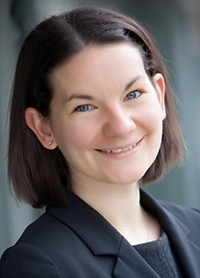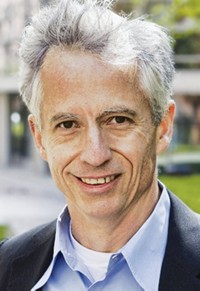Advertisement
Grab your lab coat. Let's get started
Welcome!
Welcome!
Create an account below to get 6 C&EN articles per month, receive newsletters and more - all free.
It seems this is your first time logging in online. Please enter the following information to continue.
As an ACS member you automatically get access to this site. All we need is few more details to create your reading experience.
Not you? Sign in with a different account.
Not you? Sign in with a different account.
ERROR 1
ERROR 1
ERROR 2
ERROR 2
ERROR 2
ERROR 2
ERROR 2
Password and Confirm password must match.
If you have an ACS member number, please enter it here so we can link this account to your membership. (optional)
ERROR 2
ACS values your privacy. By submitting your information, you are gaining access to C&EN and subscribing to our weekly newsletter. We use the information you provide to make your reading experience better, and we will never sell your data to third party members.
Materials
ACS Award in Pure Chemistry and the National Fresenius Award: Neal K. Devaraj
by Linda Wang
January 2, 2017
| A version of this story appeared in
Volume 95, Issue 1
National Fresenius Award Sponsor: Phi Lambda Upsilon, the National Chemistry Honor Society
Citation: For his outstanding contributions toward the development of tetrazine ligations.
Award in Pure Chemistry Sponsor: Alpha Chi Sigma Fraternity and the Alpha Chi Sigma Educational Foundation
Citation: For his outstanding accomplishments in bioconjugation chemistry, which include the development of new reactions for cellular imaging and the assembly of artificial membranes.
Current position: associate professor of chemistry and biochemistry, University of California, San Diego
Education: B.S., chemistry and biology, Massachusetts Institute of Technology; Ph.D., chemistry, Stanford University
Devaraj on what he hopes to accomplish in the next decade: “I am very interested in studies at the interface of nonliving and living systems and believe there are fascinating questions we can ask. For instance, how can nonliving sets of molecules develop into self-reproducing evolvable materials? Can we design hybrid systems where biochemical elements seamlessly interact with and control synthetic structures? I hope we can better understand some of these problems over the next decade.”
What his colleagues say: “His clever mechanistic engineering approach has the potential to reveal fundamental principles at the core of some of the most intriguing questions about the chemical origin of life on Earth and may aid us in understanding how sets of reactive small molecules led to the first living cells, a problem in chemistry that is still a virtual ‘black box.’ ”—Partho Ghosh, University of California, San Diego
Awards
- 2017 ACS national award winners
- ACS Award in Separations Science & Technology: Rakesh Agrawal
- ACS Award in Applied Polymer Science: Zhenan Bao
- Gabor A. Somorjai Award for Creative Research in Catalysis: John E. Bercaw
- Peter Debye Award in Physical Chemistry: Bruce J. Berne
- Charles Lathrop Parsons Award: John I. Brauman
- Glenn T. Seaborg Award for Nuclear Chemistry: David L. Clark
- Award for Volunteer Service to the American Chemical Society: D. Richard Cobb
- E. B. Hershberg Award for Important Discoveries in Medicinally Active Substances: Stanley T. Crooke
- ACS Award in Organometallic Chemistry: Marcetta Y. Darensbourg
- Ronald Breslow Award for Achievement in Biomimetic Chemistry: Benjamin G. Davis
- ACS Award in Pure Chemistry and the National Fresenius Award: Neal K. Devaraj
- ACS Award for Team Innovation: Robert A. DeVries, Philip Garrou, Carol E. Mohler, Theodore M. (Ted) Stokich Jr., and Eric S. Moyer
- ACS Award for Affordable Green Chemistry: Peter J. Dunn
- F. Albert Cotton Award in Synthetic Inorganic Chemistry: Pingyun Feng
- Francis P. Garvan-John M. Olin Medal: Barbara J. Finlayson-Pitts
- ACS Award in Surface Chemistry: Cynthia M. Friend
- ACS Award in Industrial Chemistry: Jane Frommer
- Elias J. Corey Award for Outstanding Original Contribution in Organic Synthesis by a Young Investigator: Neil K. Garg
- George A. Olah Award in Hydrocarbon or Petroleum Chemistry: Robert H. Grubbs
- Nakanishi Prize: Martin Gruebele
- James T. Grady-James H. Stack Award for Interpreting Chemistry for the Public: Thomas A. Hager
- Harry Gray Award for Creative Work in Inorganic Chemistry by a Young Investigator: Nilay Hazari
- ACS Award for Research at an Undergraduate Institution: Maria R. Hepel
- George C. Pimentel Award in Chemical Education: Thomas A. Holme
- ACS Award in Analytical Chemistry: Donald F. Hunt
- ACS Award for Encouraging Women into Careers in the Chemical Sciences: Judith M. Iriarte-Gross
- Alfred Bader Award in Bioinorganic or Bioorganic Chemistry: Kim D. Janda
- ACS Award in Chromatography: Robert T. Kennedy
- ACS Award in the Chemistry of Materials: Douglas A. Keszler
- ACS Award in Colloid Chemistry: Nicholas A. Kotov
- Ahmed Zewail Award in Ultrafast Science & Technology: Stephen R. Leone
- Nobel Laureate Signature Award for Graduate Education in Chemistry: Junqi Li (student) and Martin D. Burke (preceptor)
- Herbert C. Brown Award for Creative Research in Synthetic Methods: Bruce H. Lipshutz
- Earle B. Barnes Award for Leadership in Chemical Research Management: Laurie E. Locascio
- Ernest Guenther Award in the Chemistry of Natural Products: Stephen F. Martin
- ACS Award for Computers in Chemical & Pharmaceutical Research: Yvonne C. Martin
- ACS Award for Encouraging Disadvantaged Students into Careers in the Chemical Sciences: Saundra Y. McGuire
- James Flack Norris Award in Physical Organic Chemistry: Robert A. Moss
- ACS Award in Polymer Chemistry: Murugappan Muthukumar
- E. Bright Wilson Award in Spectroscopy: David J. Nesbitt
- E. V. Murphree Award in Industrial & Engineering Chemistry: Eleftherios Terry Papoutsakis
- ACS Award in Theoretical Chemistry: Peter Pulay
- ACS Award in Inorganic Chemistry: Lawrence Que Jr.
- ACS Award for Creative Work in Synthetic Organic Chemistry: Matthew S. Sigman
- ACS Award for Creative Invention: Richard B. Silverman
- James Bryant Conant Award in High School Chemistry Teaching: Laura E. Slocum
- ACS Award for Creative Work in Fluorine Chemistry: Antonio Togni
- ACS Award for Distinguished Service in the Advancement of Inorganic Chemistry: William B. Tolman
- Joel Henry Hildebrand Award in the Theoretical & Experimental Chemistry of Liquids: Salvatore Torquato
- ACS Award for Achievement in Research for the Teaching & Learning of Chemistry: Marcy H. Towns
- Kathryn C. Hach Award for Entrepreneurial Success: David R. Walt
- ACS Award for Creative Advances in Environmental Science & Technology: Douglas R. Worsnop
- Frank H. Field & Joe L. Franklin Award for Outstanding Achievement in Mass Spectrometry: Vicki H. Wysocki
- Roger Adams Award in Organic Chemistry: Hisashi Yamamoto
- All Awards






Join the conversation
Contact the reporter
Submit a Letter to the Editor for publication
Engage with us on Twitter